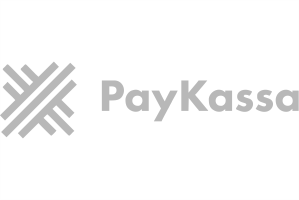| Name of service | Bronze | Silver | Gold | Platinum | Brilliant |
|---|---|---|---|---|---|
 Company name verification and reservation in SEC ( Securities and Exchange Commission ) Verifying the availability and reserving of your preferred company name in the registry (Securities and Exchange Commission)
Company name verification and reservation in SEC ( Securities and Exchange Commission ) Verifying the availability and reserving of your preferred company name in the registry (Securities and Exchange Commission)
|

|

|

|

|

|
 Company registration as Domestic Corporation in SEC including government fees Preparation and submission of all required documents and fees to the relevant government authorities for company registration, ensuring a streamlined process for our clients
Company registration as Domestic Corporation in SEC including government fees Preparation and submission of all required documents and fees to the relevant government authorities for company registration, ensuring a streamlined process for our clients
|

|

|

|

|

|
 Memorandum of Association Preparation of the memorandum of association, which defines the procedure for the creation of the company; the authorized capital of the company; the size and nominal value of the shares of the founders, as well as the order of payment
Memorandum of Association Preparation of the memorandum of association, which defines the procedure for the creation of the company; the authorized capital of the company; the size and nominal value of the shares of the founders, as well as the order of payment
|

|

|

|

|

|
 Minutes of the meeting of directors of the company Document preparation necessary for the legal registration of directors within the company structure
Minutes of the meeting of directors of the company Document preparation necessary for the legal registration of directors within the company structure
|

|

|

|

|

|
 Certificate of incorporation Provision of international standard certificate of incorporation for your company
Certificate of incorporation Provision of international standard certificate of incorporation for your company
|

|

|

|

|

|
 LGU number registration (Local Government Unit) LGU (Local Government Unit) in the Philippines is the local government unit responsible for the administration and delivery of government services at the municipal or city level. LGUs include municipalities, cities, and provinces. They have authority over land use, health, education, transportation, urban planning, and other areas. LGUs play an important role in developing and supporting local communities, providing them with necessary services and management at the local level
LGU number registration (Local Government Unit) LGU (Local Government Unit) in the Philippines is the local government unit responsible for the administration and delivery of government services at the municipal or city level. LGUs include municipalities, cities, and provinces. They have authority over land use, health, education, transportation, urban planning, and other areas. LGUs play an important role in developing and supporting local communities, providing them with necessary services and management at the local level
|

|

|

|

|

|
 Registering a BIR number (Bureau of Internal Revenue) The BIR in the Philippines is a tax collection agency that collects taxes and enforces tax laws. It collects taxes on income, VAT, and other liabilities. The BIR plays an important role in financing the government and conducts audits to combat tax crimes
Registering a BIR number (Bureau of Internal Revenue) The BIR in the Philippines is a tax collection agency that collects taxes and enforces tax laws. It collects taxes on income, VAT, and other liabilities. The BIR plays an important role in financing the government and conducts audits to combat tax crimes
|

|

|

|

|

|
 Assistance in obtaining DST number (Documentary Stamp Tax) Documentary Stamp Tax is a tax on documents, instruments, loan agreements and papers evidencing the acceptance, assignment, sale or transfer of an obligation, right or property incident
Assistance in obtaining DST number (Documentary Stamp Tax) Documentary Stamp Tax is a tax on documents, instruments, loan agreements and papers evidencing the acceptance, assignment, sale or transfer of an obligation, right or property incident
|

|

|

|

|

|
 Reports on activities after the creation of the company "Post company reports in the Philippines" is a service provided to ensure transparency and compliance with local requirements. This includes reporting of finances, taxes and other data
Reports on activities after the creation of the company "Post company reports in the Philippines" is a service provided to ensure transparency and compliance with local requirements. This includes reporting of finances, taxes and other data
|

|

|

|

|

|
 SSS, PHILHEALTH and PAG-IBIG registration "SSS (Social Security System) in the Philippines is a national social security system that provides retirement, health and other social benefits to workers in the private sector.
PHILHEALTH (Philippine Health Insurance Corporation) is a government agency that provides public health insurance, which provides access to health care services and payment for medical treatment in the Philippines.
PAG-IBIG (Home Development Mutual Fund) is a fund that provides financial support for the construction or purchase of homes and real estate loans for Filipinos. It also offers savings and investment programs for future pensions and financial stability. "
SSS, PHILHEALTH and PAG-IBIG registration "SSS (Social Security System) in the Philippines is a national social security system that provides retirement, health and other social benefits to workers in the private sector.
PHILHEALTH (Philippine Health Insurance Corporation) is a government agency that provides public health insurance, which provides access to health care services and payment for medical treatment in the Philippines.
PAG-IBIG (Home Development Mutual Fund) is a fund that provides financial support for the construction or purchase of homes and real estate loans for Filipinos. It also offers savings and investment programs for future pensions and financial stability. "
|

|

|

|

|

|
 Assistance in opening a corporate account in Banco de Oro (BDO), Metrobank, Bank of the Philippine Islands (BPI) Collection, processing and filing of documents required for opening a corporate bank account, including consultation on the choice of appropriate jurisdiction
Assistance in opening a corporate account in Banco de Oro (BDO), Metrobank, Bank of the Philippine Islands (BPI) Collection, processing and filing of documents required for opening a corporate bank account, including consultation on the choice of appropriate jurisdiction
|

|

|

|

|

|
 Assistance with a VAT number obtainment Assistance in obtaining a VAT number for your company
Assistance with a VAT number obtainment Assistance in obtaining a VAT number for your company
|

|

|

|

|

|
 Apostilled and Translated company documents Apostille certification and consular legalization of documents, depending on the country of operation
Apostilled and Translated company documents Apostille certification and consular legalization of documents, depending on the country of operation
|

|

|

|

|

|
 Local Secretary in the Philippines for 1 (one) year Provision of a local secretary for your company. This means we provide you with a local contact person who will ensure communication between you and the authorities, banks or other parties in Philippines. The contact person can help you with translations, receiving and forwarding official documents, representing your company and general administrative support. This gives you confidence and convenience in communicating and interacting with government agencies and institutions
Local Secretary in the Philippines for 1 (one) year Provision of a local secretary for your company. This means we provide you with a local contact person who will ensure communication between you and the authorities, banks or other parties in Philippines. The contact person can help you with translations, receiving and forwarding official documents, representing your company and general administrative support. This gives you confidence and convenience in communicating and interacting with government agencies and institutions
|

|

|

|

|

|
 Local Director service in the Philippines for 1 (one) year Provision of a Philippines resident director to sign company contracts and keep confidentiality of the founder, needed for special activity if you register company as a foreigner founder. Ask our specialist for information
Local Director service in the Philippines for 1 (one) year Provision of a Philippines resident director to sign company contracts and keep confidentiality of the founder, needed for special activity if you register company as a foreigner founder. Ask our specialist for information
|

|

|

|

|

|
 Local Treasurer in the Philippines for 1 (one) year We provide а Local Treasurer in the Philippines who will be government official responsible for managing the financial affairs of a local government unit (LGU). They are tasked with collecting revenue, handling disbursements, and ensuring the proper management of funds within the LGU
Local Treasurer in the Philippines for 1 (one) year We provide а Local Treasurer in the Philippines who will be government official responsible for managing the financial affairs of a local government unit (LGU). They are tasked with collecting revenue, handling disbursements, and ensuring the proper management of funds within the LGU
|

|

|

|

|

|
 Free Consultation We offer a free consultation where you can discuss your needs and questions regarding company registration and management. Our experts will be happy to help you understand the process and provide guidance based on your situation. We are happy to answer your questions and help you make an informed decision about the services you need
Free Consultation We offer a free consultation where you can discuss your needs and questions regarding company registration and management. Our experts will be happy to help you understand the process and provide guidance based on your situation. We are happy to answer your questions and help you make an informed decision about the services you need
|

|

|

|

|

|
|
Total cost
|
3900 USD | 5900 USD | 6700 USD | 7600 USD | 14000 USD |
|
Provision of a legal address for 1 (one) year
|
1500 USD | 1500 USD | 1500 USD | 1500 USD | 1500 USD |
|
Remote company registration with transfer of authority
|
300 USD | 300 USD | 300 USD | 300 USD | 300 USD |
|
Accounting services
|
190 USD | 190 USD | 190 USD | 190 USD | 190 USD |





















